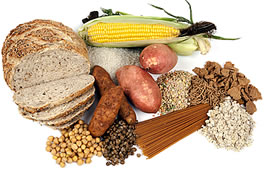Type 1 Diabetes Glossary
A
Adult-onset diabetes:
Type 2 Diabetes.
Alpha cell:
A pancreatic cell that produces glucagon. Glucagon is produced when the body's blood sugar drops too low.
Antibody (immunoglobulins):
Proteins produced by the body to guard itself from harmful bacterias and viruses.
Autoimmune Disease:
A category of diseases, in which the body produces antibodies that counter and attack helpful cells.
B
Beta cell:
Pancreatic cells located in the Islets of Langerhans. These specific cells work to produce insulin. Type 1 Diabetes occurs when the body's antibodies attack and destroy beta cells.
Blood glucose:
Sugar in the blood that is transported to cells, which then use the glucose to produce energy. 2. The amount of sugar in the blood.
Blood Glucose Meter:
A device used by diabetics to regulate the sugar in their bloodstream. Once this measurements are complete, the diabetic will use other devices to accommodate their blood sugar's needs.
Bolus:
A dose of insulin injected into the body, mainly before meals. This is to regulate the carbohydrates that when consumed will increase the body’s blood glucose.
C
Calorie:
A measurement of the amount of energy in a food or drink.
Carbohydrates:
Compounds found in foods that are broken down by the digestive system and released into the bloodstream. The broken down components are guided to cells, to eventually be used as an energy source.
G
Glucagon:
A hormone made by the pancreas' alpha cells, that counters the job of insulin. While insulin lowers blood glucose, glucagon raises the blood glucose concentration.
Glucose:
Simple sugars.
H
Hormones:
Substances produced by the body that allow the body to operate multiple vital functions.
Hyperglycemia:
A state of being in a diabetic where their glucose levels are above the recommended normal; surplus of glucose in the blood.
Hypoglycemia:
A state of being in a diabetic where their glucose levels are below the recommended normal; lack of glucose in the blood.
I
Immune system:
A main body system that protects the body from foreign types of viruses or bacterias. In Type 1 Diabetes the immune system mistakenly attacks the helpful beta cells.
Insulin:
A hormone produced by beta cells in the pancreas that allow glucose to be transformed into energy by cells.
Insulin Pump:
A device used to bolus and monitor blood levels constantly. A needle is injected which connects to a small handheld device with a display.
Islets of Langerhans:
Islets in the pancreas that work to produce the hormones glucagon and insulin.
N
Neuropathy:
Damage of the nervous system that is more common to occur in diabetics than non-diabetics.
P
Pancreas:
An organ that produces hormones and materials that aid digestion and energy production.
S
Sugar:
A substance used as a sweetener that can also be broken down into glucose.
T
Type 1 diabetes:
A disease when the pancreas produces an insufficient amount of insulin. It is typically diagnosed in children and there is no current cure.
Type 2 diabetes:
A disease developed where the cells develop a resistance to insulin or lack of insulin. It is typically diagnosed in adults and can be reversed through healthy diet and exercise.
V
Vascular:
Correlating with blood vessels.

Back to Top!



/specific/images/text_alt/4_beta_cell.jpg)




